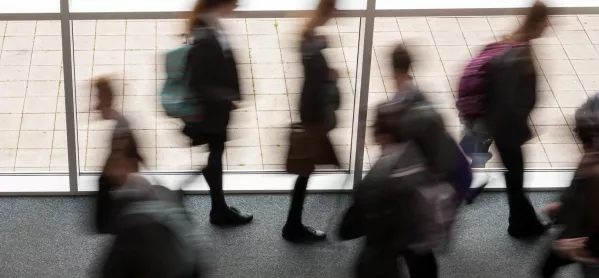Boys are less likely to say they feel safe at school than girls, according to new research published today.
Researchers from the International Association of the Evaluation of Educational Achievement (IEA) found that, in England, while 75 per cent of 10-year-old girls said they agreed “a lot” that they felt safe at school, just 67 per cent of 10-year-olds boys felt the same.
At secondary, 45 per cent of 14-year-old girls and 44 per cent of 14-year-old boys agreed a lot that they felt safe at school.
Opinion: bullying dominates our society - not just schools
Quick read: Monica Lewinsky urges teachers to tackle cyberbullying
Quick read: Research shows rise in mental health and cyberbullying issues
The analysis found similar gender patterns internationally, with Sweden the only country out of 52 education systems, where more 10-year-old boys than girls agreed a lot that they felt safe in schools.
For 14-year-olds, only four countries - Japan, Korea, Norway and Sweden - had a statistically significant higher number of boys than girls agreeing they felt safe a lot.
On average across 52 education systems, at age 10, 60 per cent of boys and 65 per cent of girls agreed a lot they felt safe at school. At age 14, 46 per cent of boys and 49 per cent of girls felt the same.
The IEA analysed data gathered in a student questionnaire as part of its Trends in International Mathematics and Science Study (Timss).
In the questionnaire, children were asked how much they agreed with the statement: “I feel safe when I am at school” and could choose from four options: “agree a lot”, “agree a little”, “disagree a little”, “disagree a lot”.
“As both boys and girls progress through school, the academic achievement gap between those who feel very safe in school and those who don’t feel very safe in school tends to increase,” states the report, Do both boys and girls feel safe at school - and does it matter?
The analysis carried out found that, while boys are less likely to feel safe in school, it was secondary-aged girls whose academic achievements in the Timss maths and science tests are most affected by how safe they feel.
In England, at age 14, boys who agreed a lot that they felt safe in school scored 22 points more in maths than their peers who felt less safe, while 14-year-old girls who felt very safe in school achieved 36 points more on average than other girls in maths. The average Timss score is 500.
“Feeling safe in school seems to be an important factor for academic achievement regardless of gender,” the report states. “While boys feel less safe overall, the academic achievement of girls is more strongly related to their perceptions of safety.”




